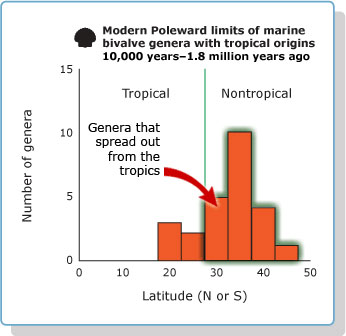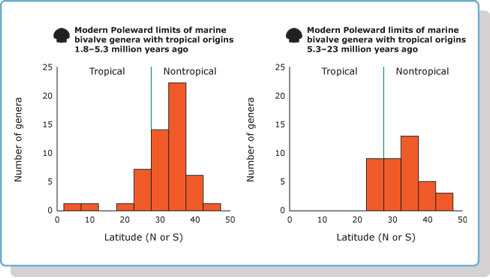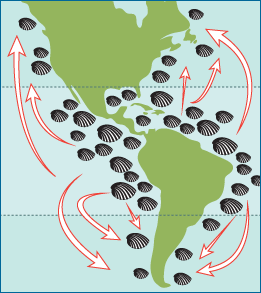Based on the graph we just examined, it looks like groups that started in the tropics tend to spread out to other regions after their origination. Only five of the 25 genera that started in the tropics stayed put. Most of them (20 out of 25) spread. This evidence points out a potentially important role for the tropics in global biodiversity. If this pattern is a common one, the tropics are an engine of diversity for the rest of the world!

Unfortunately, we don’t have data that would let us test this idea in other groups of animals, but we can see if the same pattern holds for bivalves that got their starts in different time periods. The graphs below show bivalves that originated between 1.8 and 5.3 million years ago and between 5.3 and 23 million years ago.

They also show that most bivalves originating in the tropics tend to spread to non-tropical regions. It looks like (for bivalves at least), the tropics are an important engine for biodiversity elsewhere on Earth. New groups tend to originate in the tropics and colonize other parts of the world.
Question 12
Imagine a hypothetical planet on which organisms that first evolve in one climate don't spread to others. If you were to study the fossil record of that planet and create a graph like the ones above for animal genera living on that planet, what would it look like? Sketch a hypothetical graph.

